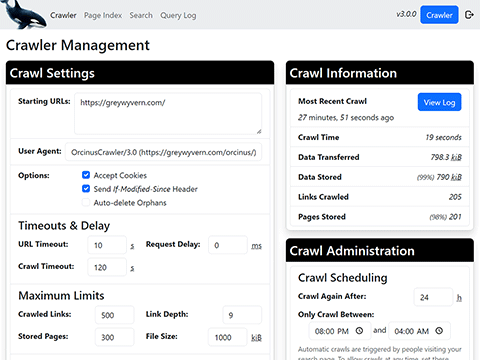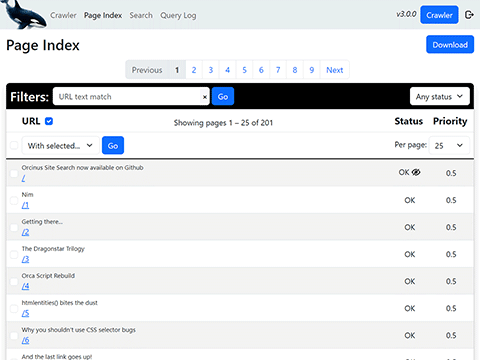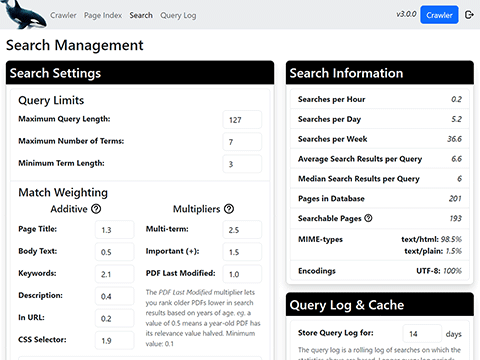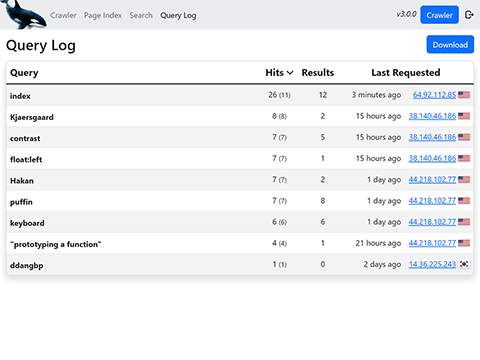Orcinus Site Search

Orcinus Site Search is a PHP and MySQL/MariaDB based system for automatically crawling the content of a website (or multiple websites) and providing a search interface for your visitors to use.
Use the search interface live demo.
Download from the Github repository.
Major Features
- Automatic site crawling, indexing and searching engine
- Schedule your crawls to happen only between certain hours of the day, or crawl via CLI / crontab
- Interrupted crawls can be resumed from where they left off
- Indexes plain text, HTML, XHTML, XML, and PDF files via PDFParser
- Adjust search relevance of PDFs based on their age
- Fully customizable search output template via Mustache
- Search "for phrases", important (+), negation (-), and filetype:xxx
- Implicit matching for latin accented characters; eg. A search for "voila" will match "voilà"
- Dynamic search suggestion support on search fields via typeahead.js
- Responsive Bootstrap-based administration UI that's as easy to work with on mobile as it is on desktop; manage your site search from anywhere!
- Convenient CSV downloads of your list of indexed pages, and the log of search queries
- Optional Geolocation of your search users via Maxmind, with flag icons from Flagpedia.net
- Optional sitemap generation after every crawl, per sitemaps.org, uploadable to the Google Search Console
- Export a javascript version of your search engine that works offline; works great with mirrors generated by HTTrack
Requirements
- PHP >= 8.1
- MySQL >= 8.0.17 or MariaDB >= 10.0.5
Donate
Orcinus Site Search is free! If you'd like to support my work, or would just like to send some thanks, you can donate using Bitcoin Cash.
bitcoincash:qqaftzk8dw25vr9s4w0u0grh9sdcwu0hk5l3xgh4ef

Admin UI




